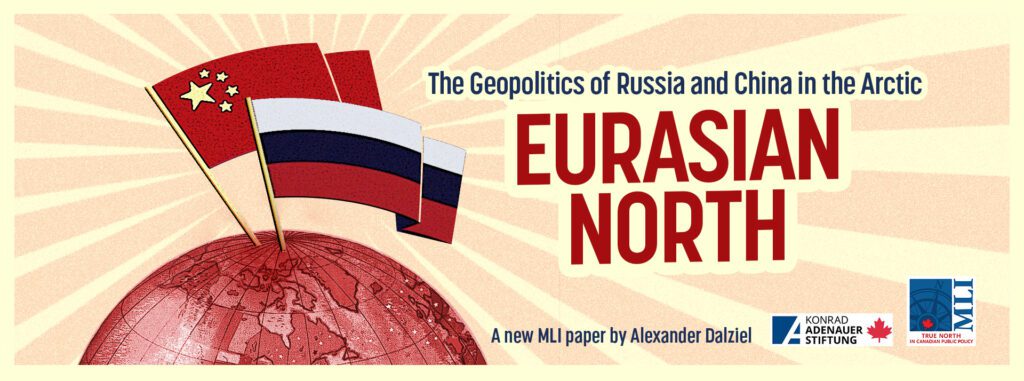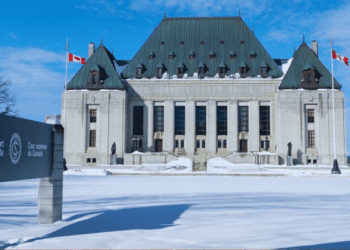This article originally appeared in the National Post.
By Christopher Dummitt, October 22, 2024
The Hamas-supporting terrorist group Samidoun represents a conundrum for this country. But it might not be the one you’d think.
We can take Samidoun at its word — that they really do have a vendetta against Canada and the western world in general. The federal government has, finally, listed the group as a terrorist organization.
The trickier problem for Canadians is what to make of the terrorist group’s fellow travellers. These are the Canadians waving Palestinian flags on overpasses of the 401 in Toronto, or the Students4Palestine groups who believe that what’s happening in Gaza and Lebanon is a “genocide,” or the Faculty4Palestine groups on universities across the country demanding an end to what they call “scholasticide.“
These are intelligent people. There are university professors — men and women with PhDs who are experts in their fields of study. There are swathes of bright and idealistic students who seem genuine in their desire to make the world a better place.
And yet, the sheer one-sidedness of the protests, the way in which these groups seem unable to ask obvious questions, makes for a fascinating, but sad, case study on how smart and good people fall for incomplete accounts of complex moral problems.
At my own university, each day, I pass by a memorial vigil which aims to list the names of Palestinian children who have died since October 7. No doubt the students writing up these names in chalk are guided by good intentions. They are undoubtedly concerned by the continual death toll. When you see the costs of the war in Gaza, it’s hard not to be.
Yet there are, as far as I can see, no names of Jewish victims at the vigil. There’s nothing about the Israeli, American, (or even Canadian) dead from the attacks on October 7. Nor are there any references to the hostages taken by Hamas.
There’s no indication that the professors or students at my universities or others want some advice. But if they had asked for direction, here are a series of questions I would want them to consider:
The first is a simple one: why does this conflict motivate you so much? Tens of thousands of people are being killed in Sudan in a longstanding civil war yet, as far as I can tell, this isn’t drawing your sympathy or anger. Why is it that the only Jewish state in the world is the one that attracts your ire, while other oppressive regimes escape sanction?
On Gaza itself, there is an even more basic conundrum: why are there no bomb shelters in Gaza? How is it that those who planned the raid on Israel, who knew that their attack would almost certainly elicit devastating retaliation, didn’t plan on ways to protect their own citizens?
It’s not for lack of resources. There are miles and miles of bomb proof tunnels all throughout Gaza. Why are these protective bunkers used to hide militants and not protect civilians? In London during the Blitz, Britain did all it could to protect its people. The same goes for Ukrainians today. Why is Hamas failing at the most basic part of government?
The word genocide seems to be on every other sign at protests and is a continual allegation. This is worthy of some critical thought. What’s the difference between deaths caused by collateral damage in war and the intentional destruction of a whole people? Is it possible to engage in war in urban settings and not kill civilians? On this front, other military scholars have done the work and have found that the civilian death toll in Gaza is comparable to conflicts in the past and actually appears to be less severe (if still horrific).
Perhaps the most important question — with the most disturbing implications — is this: does Hamas benefit from the deaths of its own people? From Hamas’s perspective, is all of the international attention on civilian deaths — and the resulting criticism of Israel — one of the goals of the war? What if every death in Gaza — and its amplification in the media in the rest of the world — is a public relations ‘win’ for Hamas?
For other Canadians, we should have a different series of questions.
This conflict is happening on the other side of the world. It’s not directly about Canada — but it is influencing Canadian politics and it tells us a good deal about how certain groups of Canadians see our own nation. Most people chanting slogans at pro-Palestinian encampments aren’t genuinely supporting terrorism. But they are mouthing the same slogans as terrorists. They are operating from within the same ideological worldview.
For other Canadians, the questions are troubling: if Samidoun’s fellow travellers are willing to justify and defend terrorism in one part of the world, what makes Canada safe?
When Samidoun’s fellow travellers justify violence — claiming Israelis are settlers and Palestinians are Indigenous — and then refer to Canada as a settler colonial project, what are they admitting about their own attitudes towards Canada? If Canada fought back against attacks on Canadian soil, would these same activists call for a “ceasefire” when Canada retaliates against those attacking our nation?
How can we be sure they wouldn’t find ways to justify and excuse acts of barbarity perpetrated on Canadian soil as part of projects of “decolonization” and “resistance”?
In other words, the outright terrorist groups are the easy problem. More unsettling are those who largely support them, but are less forthright about what that support could mean here in Canada.
Christopher Dummitt is a historian of Canadian culture and politics at Trent University and a senior fellow at the Macdonald-Laurier Institute.







